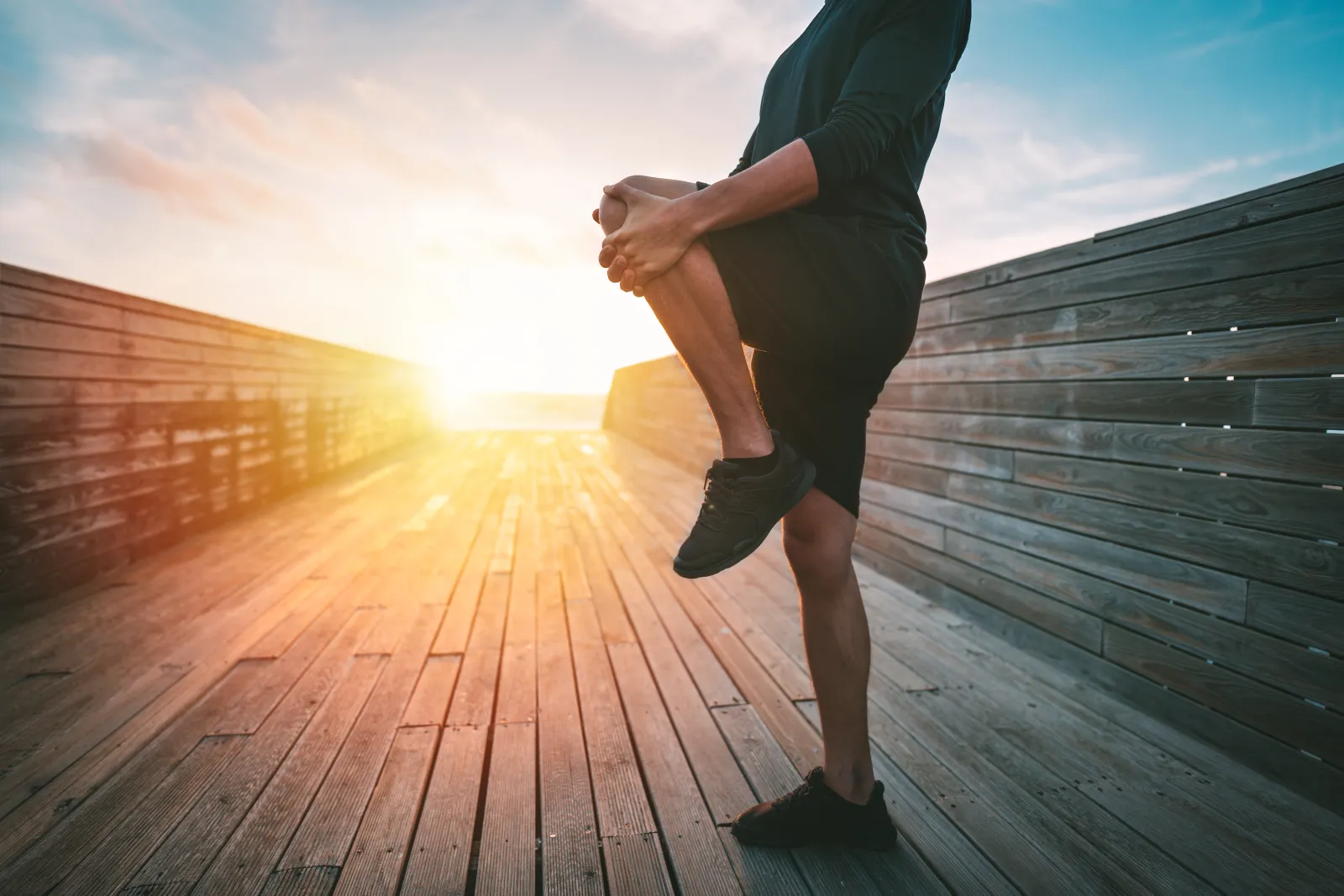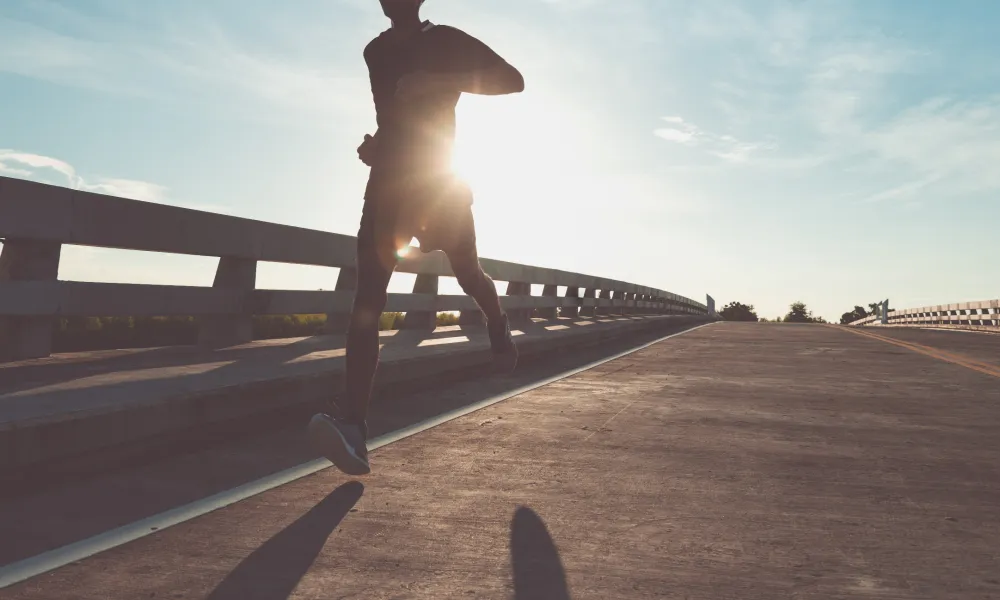Summer running season is here and the good news is that we're now working with warmer temps and fewer layers. Whether you're just starting out or training for a marathon, there is more to running safely in the summer than applying sunscreen and drinking water.
Maintain a safe body temperature
If you're just starting out for the season, give your body at least a couple of weeks to get used to the heat and gradually increase the intensity and length of your runs.
Running while overheated may mean that your body will go into survival mode, keeping the blood flowing to your skin and vital organs. This can cause problems like GI distress, cramping, becoming lightheaded, or even heat exhaustion/heatstroke.
During the summer, take advantage of longer daylight hours. Avoid the hottest part of the day (usually between 10 am and 4 pm) and run either early in the morning or in the evening instead.
Hydrate strategically
Don't under or overcompensate! If you're not hydrated enough, you risk dehydration and heat cramps. If you're over-hydrated, you risk diluting electrolytes. Staying well-hydrated can prevent symptoms like stomach cramps, lightheadedness, and headaches.
Drink at least 8 to 12 ounces of water 30 minutes before any exercise to keep your perspiration system functioning. Try to consume another 8 to 12 ounces for every 20 minutes you're exercising.
Wear the right clothes
Look for light colored, lightweight, loose-fitting, non-100% cotton clothing to reflect the sun and heat - and to allow your body to cool naturally. Consider selecting clothing with a UPF factor of at least 50.
Choose a better route
Avoid running on asphalt or concrete because they retain heat and reflect sunlight, causing you to overheat faster and tire sooner. Instead, run on grass or trails. A forest preserve or other wooded trail is ideal in warmer weather (just remember to wear supportive shoes!).
Never forget sunscreen
According to a recent study, runners are at a higher risk of skin cancer and skin damage than other athletes.
Look for products with an SPF of 50 or more that provide broad-spectrum protection, protecting you from ultraviolet radiation, UVA and UVB. Apply it at least 15 minutes before running.
Don't worry about pace
In the heat, alter your long runs to include walking intervals. Try walking every 4 to 5 minutes for 1 to 2 minutes to keep your core temperature in check. This will reduce the chances of developing heat stress.


